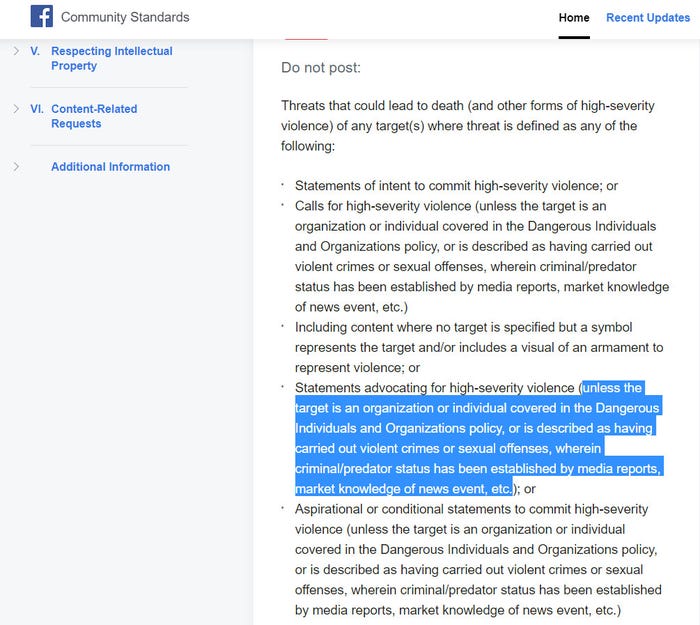Battle lines drawn ahead of White House social media summitBattle lines drawn ahead of White House social media summit
US President Trump has invited a number of social media commentators to a discussion about the current digital environment.
July 10, 2019

US President Trump has invited a number of social media commentators to a discussion about the current digital environment.
This is being largely interpreted as an anecdotal investigation into the nature of social media censorship, with Trump having repeatedly raised his concerns on the matter. The major social media platforms don’t seem to have been invited, however, instead a selection of independent journalists, commentators and activists will be asked about their online experiences.
The White House hasn’t published a list of attendees, so here’s our own, in no particular order, derived from information already in the public domain. We’ve also included the number of Twitter followers each attendee has to provide some measure of their online influence. The summit takes place tomorrow.
Tim Pool – YouTube Journalist – 352k
James O’Keefe – Independent Journalist – 548k
Ben Garrison – Political Cartoonist – 176k
Charlie Kirk – Activist – 1.16m
Ali Alexander – Activist – 95k
Scott Presler – Activist – 226k
Bill Mitchell – Broadcaster – 445k
Carpe Donctum – Activist – 122k
PragerU – YouTube Commentator – 271k
Heritage Foundation – Think Tank – 649k
Media Research Center – Media Watchdog – 157k
Christian Ziegler – Activist – 3k
It has not gone unnoticed that nearly all of those invited are at the conservative end of the US political spectrum and Trump is known to be concerned that online censorship tends to affect conservatives disproportionately. It’s presumably not a coincidence that most of these conservatives also seem to be committed Trump supporters.
The presence of the two journalists at the top of the list indicates this will be more than just a Trump supporter love-in, however. “This event will bring together digital leaders for a robust conversation on the opportunities and challenges of today’s online environment,” a White House spokesperson is widely reported to have advised.
Pool has probably been chosen due to his high-profile grilling of Twitter on the Joe Rogan podcast, in which he argued some of its rules on permitted speech are demonstrably biased against conservatives. Similarly O’Keefe’s organisation Project Veritas has recently claimed to have exposed similar political bias at Google.
So it seems clear that at least one of the primary purposes of this summit is to enable the US government to gather evidence of bias in social media censorship. Earlier this year the White House opened a web form inviting people to submit such evidence, so it’s possible this will have influenced who was invited too.
While much commentary has focused on the perceived political agenda of this summit, the absence of not only the big tech companies but big media too indicates another angle. There is a growing body of anecdotal evidence that social media censorship is increasingly biased against independent commentators and thus in favour of corporate, institutional, establishment voices.
Leftist independent commentator David Pakman has alleged in the video below that the YouTube recommendation algorithm has been changed in order to favour corporate over independent media. Most of the independents he cites are also leftist, indicating this isn’t a predominantly political move.
It is well documented that YouTube has been anxious about the effect of some of its more contentious contributors on revenues for some time and has implemented broad censorship in an apparent attempt to appease big advertisers. If there is bias in the recommendation algorithm in favour of corporate media it’s probably because advertisers also favour them, but every piece of arbitrary censorship seems to create as many problems as it solves.
Meanwhile, Twitter is where Trump spends much of his time and so is probably the platform he scrutinises most closely. A US appeals court recently ruled that it’s unconstitutional for Trump to block people on Twitter, but this precedent had led to other US politicians who have blocked people on Twitter being sued. Elsewhere Twitter’s recent decision to ban any comment that ‘dehumanizes others on the basis of religion’ seems destined to raise questions about selective enforcement.
Not to be out-done Facebook recently updated its policy regarding ‘violence and incitement’ with the guidance shown in the screenshot below.

This seems to say that it’s OK to advocate high-severity violence (un-defined) against anyone Facebook considers to be a ‘dangerous individual’ or anyone said to be a violent criminal or sexual predator. Since Facebook explicitly identified several individuals as dangerous recently, some of those people have understandably interpreted this move as hostile to them.
That there is a growing body of evidence of a deeply flawed approach by social media companies to policing their platforms is undeniable. To what extent this involves political bias remains unclear, but Trump seems to think it does and, with the next US general election imminent, he seems increasingly disposed to bring the full force of the state against any tech companies deemed to be acting against the public, and his, interest. Those companies will doubtless be following this summit with interest.
We’ll leave you with Pool’s take on the whole thing.
About the Author
You May Also Like










.png?width=300&auto=webp&quality=80&disable=upscale)


_1.jpg?width=300&auto=webp&quality=80&disable=upscale)